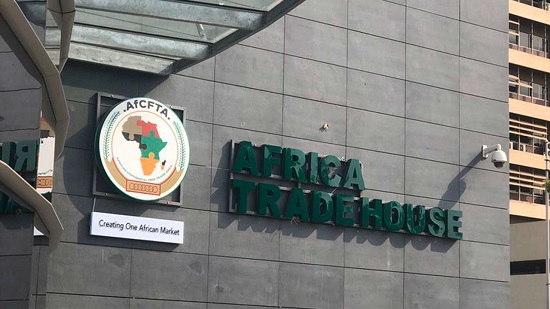This post has already been read 1206 times!
With the launch of the start of trading on the basis of the African Continental Free Trade Agreement (AfCFTA), members of the African Business Council (AfBC), representing the pan-African private sector, have described the trade deal as an opportunity for operators to build the continent’s production capacity.
According to the group, African countries should leverage the trade deal to address challenges in logistics and other forms of red tapes inhibiting regional trade.
Results from the liberalization of trade in goods alone under the AfCFTA reform show that Africa’s global gross domestic product (GDP) and exports would increase. Overall, Africa’s GDP is forecasted to increase between $28 and $44 billion after full implementation in 2040, compared to a baseline without tariff liberalization.
As far as exports are concerned, the bulk of the benefits would be for intra-African trade, with exports foreseen to increase by around $50-$70 billion, according to the Economic Commission for Africa (ECA).

Indeed, the AfBC acknowledged that the start of trading under the AfCFTA presents enormous business opportunities for the Pan-African Private Sector, SMEs, Women, and Youths, as the continent takes this bold move towards boosting intra-African trade.
The Council also reiterated its support to the political leaders in ensuring the success of the trade deal, noting that AfCFTA is an opportunity for the pan-African private sector to build the continent through manufacturing, distribution, transportation, health eco-systems, among others.
“The AfCFTA gives us an opportunity to drive our agenda. For many years, the African business community has been individualistic in driving the continent’s agenda. It is an opportunity for us as the African Business Council to come together and support the implementation of the AfCFTA. We are a united voice, and we can do this together,” said Interim Chairperson of the AfBC, Dr. Amany Asfour.
“It is a new year, and new opportunities are emerging. As manufacturers, traders, farmers, transporters, shippers, Women Business Associations, and Youths, here is our time. Let us go out there and grab the opportunities. It is time to feed Africa through agriculture, manufacturing, and promoting value chains. It is only through a united voice that we can have a transformation in Africa,” added the Interim Vice-Chairperson, Dr. Ahmed Mansur.
On her part, the Secretary-General of the United Nations, Ms. Amina J. Mohammed, said: “The proliferation of Non-Tariff Barriers in Africa has often hindered intra-Africa trade. It is difficult to move cargo among African countries, and the online system on the Monitoring, Reporting and Elimination of Non-Tariff Barriers (www.tradebarriers.africa) will assist in the implementation of the AfCFTA.”
“As the African Export and Import Bank, we are ready to support the implementation of the AfCFTA, through the Pan-African Payments and Settlement System (PAPSS). The PAPSS is one of the greases that will oil the engines of the AfCFTA,” President and Chair of AFREXIMBANK, Professor Benedict Oramah, commented.
“Reliable trade information is central to the implementation of the AfCFTA, and the African Trade Observatory is available for the Business community to make use of it. It will provide real-time market information on the AfCFTA, as well as assist policymakers in making informed decisions,” said Pamela Coke-Hamilton, Executive Director for the International Trade Centre.
“Promotion of cross border trading is central to the African Women Business Community. As ITC-SheTrades, the implementation of the AfCFTA should witness smooth cross border trade,” added Ms. Vanessa Erogbogbo, Head of ITC-SheTrade.
With the commencement of the start of trading, the AfBC noted that it is working earnestly to constitute greater support of the AfCFTA by the continental private sector while actively engaging African policymakers on any recommendations and concerns expressed by the sector. It is expected to hold its first general assembly in 2021.



